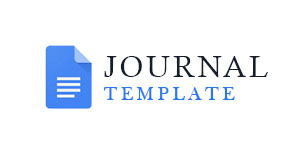WHISTLEBLOWING INTENTION DITINJAU DARI JENIS KELAMIN DAN UMUR
Abstract
Abstract
Before someone does whistleblowing, the intention first appears. This study aims to examine whether there are differences in intention to report fraud in terms of gender and age. The respondents of this study were BPK RI auditors from Central Java, with a total sample of 74. The gender variable was divided into two, male and female, while the age variable was divided into under 40 years and over 40 years. The test results show that there are significant differences between males and females regarding their intention to do whistleblowing. The second result is that there is no significant difference between the intention of young auditors and old auditors to conduct whistleblowing.
Keywords: Whistleblowing intention, Gender, Age
Abstrak
Sebelum seseorang melakukan whistleblowing, niat terlebih dahulu muncul. Penelitian ini bertujuan untuk menguji apakah terdapat perbedaan niat untuk melaporkan kecurangan dilihat dari jenis kelamin dan usia. Responden penelitian ini adalah para auditor BPK RI perwakilan Jawa Tengah dengan jumlah sampel sebanyak 74. Variabel Jenis kelamin dibagi menjadi dua yaitu laki-laki dan perempuan, sedangkan variabel usia dibagi menjadi di bawah usia 40 tahun dan di atas usia 40 tahun. Hasil pengujian menunjukkan bahwa terdapat perbedaan yang signifikan antara laki-laki dan perempuan mengenai niat mereka untuk melakukan whistleblowing. Hasil yang kedua yaitu tidak terdapat perbedaan yang signifikan antara keinginan auditor yang berusia muda dan auditor yang berusia tua untuk melakukan whistleblowing.
Kata Kunci: Whistleblowing intention, Jenis Kelamin, Umur
Keywords
Full Text:
PDFReferences
Abd. Samad, K., Khalid, H., & Kayadibi, S. (2015). Emerging Economies and Islamic Research Reducing Apathy in the Face of Corrupt Behaviour : Whistleblowing as an Act of ‘ Amr bi -l- ma ’ ruf wa - nahy ‘ an al -munkar. Journal of Emerging Economies and Islamic Research, 3(3), 1–14.
Ahmad, S. A., Smith, M., & Ismail, Z. (2012). Internal Whistle-Blowing Intentions: A Study of Demographic and Individual Factors. Journal of Modern Accountinng and Auditing, 8(November 2012), 1632–1645.
Ahmad, S. A., Smith, M., Ismail, Z., & Yunos, R. M. (2011). Internal whistleblowing intentions : Influence of internal auditors ’ demographic and individual factors. Annual Summit on Business and Entrepreneurial Studies (ASBES 2011) Proceeding. https://doi.org/10.13140/2.1.2435.2641
Ahmad, S., Smith, G., & Ismail, Z. (2012). Internal Whistle-Blowing Intentions : A Study of Demographic and Individual Factors. Edith Cowan University Research Online, 8, 1632–1645.
Ajzen, I. (1991). The Theory of Planned Behavior. Organizational Behavior and Human Decision Processes, 50, 179–211.
Appah, E. (2017). Determinants of Internal Auditors ’ Whistleblowing Intentions of Selected Quoted Companies in Nigeria. International Journal of African and Asian Studies, 36(2015), 17–29.
Bagustianto, R., & Nurkholis. (2015). Faktor-faktor yang mempengaruhi Minat pegawai Negeri Sipil (PNS) untuk Melakukan Tindakan Whistle-Blowing (Studi pada PNS BPK RI). Ekuitas: Jurnal Ekonomi Dan Keuangan, 19(2), 276–295.
Boylan, M. (2014). Business Ethics. John Wiley & Sons. Inc.
Erkmen, T., Caliskan, A. O., & Esen, E. (2014). An empirical research about whistleblowing behavior in accounting context. Journal of Accounting & Organizational Change, 10(2), 229–243. https://doi.org/10.1108/JAOC-03-2012-0028
Hwang, D. B. K., Chen, Y., Staley, B., Tsai, Y., & Chu, C.-L. (2013). A Comparative Study of the Propensity of Whistle-Blowing : Empirical Evidence from China , Taiwan , and the United States. International Journal of Accounting and Financial Reporting, 3(2), 202–224. https://doi.org/10.5296/ijafr.v3i2.4723
Kaplan, S., Pany, K., Samuels, J., & Zhang, J. (2009). An Examination of the Association Between Gender and Reporting Intentions for Fraudulent Financial Reporting. Journal of Bussiness Ethics, 87, 15–30. https://doi.org/10.1007/s10551-008-9866-1
Khalil, N. W. (n.d.). Islam And Whistle Blowing.
Kreshastuti, D. K., & Prastiwi, A. (2014). Analisis Faktor-faktor yang Mempengaruhi Intensi Auditor untuk Melakukan Tindakan Whistleblowing ( Studi Empiris pada Kantor Akuntan Publik di Semarang ). Diponegoro Journal of Accounting, 3(2), 1–13.
Liyanarachchi, G. A., & Adler, R. (2011). Accountants’ Whistle-Blowing Intentions: The Impact of Retaliation, Age, and Gender. Australian Accounting Review, 21(57), 167–182. https://doi.org/10.1111/j.1835-2561.2011.00134.x
Malik, M. (2018). Whistle-blowing as an Islamic Imperative: Empowering Muslim City Society towards Good Governance. Penang Institute Issues.
Napitupulu, G. B., & Bernawati, Y. (2016). Pengaruh Faktor Organisasional , Faktor Individual , Dan Faktor Demografi Terhadap Intensi Whistleblowing Full paper. Simposium Nasional Akuntansi XiX, Lampung, 1–24.
Near, J. P., & Miceli, M. P. (1985). Organizational Dissidence : The Case of Whistle-Blowing. Journal of Business Ethics1, 4, 1–16.
Nurdianti, I. T., & Ilyas, F. (2018). Pengaruh Kolektifisme, komitmen Organisasi dan penalaran Moral terhadap Intensi Melakukan Whistleblowing pada PT. Bank BRI (Persero), Tbk Cabang Bengkulu. Jurnal Akuntansi, 8(1), 15–25.
Priyastiwi. (2017). Pengaruh Faktor Demografi dan Iklim Organisasi terhadap Niat Whistleblowing Internal. Jurnal Riset Manajemen, 4(1), 12–22.
Qudus, A., & Fahm, A. O. (2018). The Policy of Whistleblowing in Nigeria : An Islamic Perspective. International Journal of Civic Engagement and Social Change, 5(3). https://doi.org/10.4018/IJCESC.2018070103
Saputra, B., & Dwita, S. (2018). Pengaruh Retaliation dan Gender Terhadap Niat Melakukan Whistle Blowing. Jurnal WRA, 6(2), 1233–1254.
Sarwono, S. S., & Soeroso, A. (2001). Determinasi Demografi terhadap Perilaku Karitatif Keorganisasian. Jurnal Siasat Bisnis, 1(6), 21–37.
Sowmya, S., & Rajashekar, H. (2015). What Motivates Whistle Blowers ? Wisdom vs . Stupidity- Two Faces of the Same Coin. American INternational Journal of Research in HUmanities, Arts and Social Sciences, 9(4), 364–368.
Winardi, R. D. (2013). The Influence of Individual and Situational Factors on Lower Level Civil Servants Whistle Blowing Intentiion in Indonesia. Journal of Indonesian Economy and Business, 28(3), 361–376.
Zhang, J., Chiu, R., & Wei, L.-Q. (2009). On whistleblowing judgment and intention organizational ethical culture. Journal of Managerial Psychology, 24(7), 627–649. https://doi.org/10.1108/02683940910989020
DOI: https://doi.org/10.24952/tijaroh.v5i2.1914
Refbacks
- There are currently no refbacks.
Copyright (c) 2019 At-tijaroh: Jurnal Ilmu Manajemen dan Bisnis Islam

This work is licensed under a Creative Commons Attribution-ShareAlike 4.0 International License.














